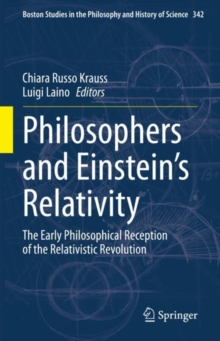
Felix Kaufmann's Theory and Method in the Social Sciences PDF
Edited by Robert S. Cohen, Ingeborg K. Helling
Part of the Boston Studies in the Philosophy and History of Science series
Description
This volume contains the English translation of Felix Kaufmann's (1895-1945) main work Methodenlehre der Sozialwissenschaften (1936).
In this book, Kaufmann develops a general theory of knowledge of the social sciences in his role as a cross-border commuter between Husserl's phenomenology, Kelsen's pure theory of law and the logical positivism of the Vienna Circle.
This multilayered inquiry connects the value-oriented reflections of a general philosophy of science with the specificity of the methods and theories of the social sciences, as opposed to abstract natural science and psychology.
The core focus of the study is the attempt to elucidate how and under what conditions scientific knowledge about social facts, empirically justified and theoretically embedded, can be obtained.
The empirical basis of knowledge within the social sciences forms a phenomenological concept of experience.
According to Kaufmann, this concept of experience exhibits a complex structure.
Within the meaning-interpretation of human action as the core of knowledge in the social sciences, this structure reaches out across the isolated act of verification toward the synthesis of external and internal experiences.
The book opens with a detailed and useful introduction by Ingeborg K.
Helling, which introduces the historical and theoretical background of Kaufmann's study and specifically illuminates his relation to Alfred Schutz and John Dewey.
Finally, it contains interviews with and letters to members of his family, colleagues and students.
Information
-
Download - Immediately Available
- Format:PDF
- Publisher:Springer International Publishing
- Publication Date:19/05/2014
- Category:
- ISBN:9783319028453
Information
-
Download - Immediately Available
- Format:PDF
- Publisher:Springer International Publishing
- Publication Date:19/05/2014
- Category:
- ISBN:9783319028453










